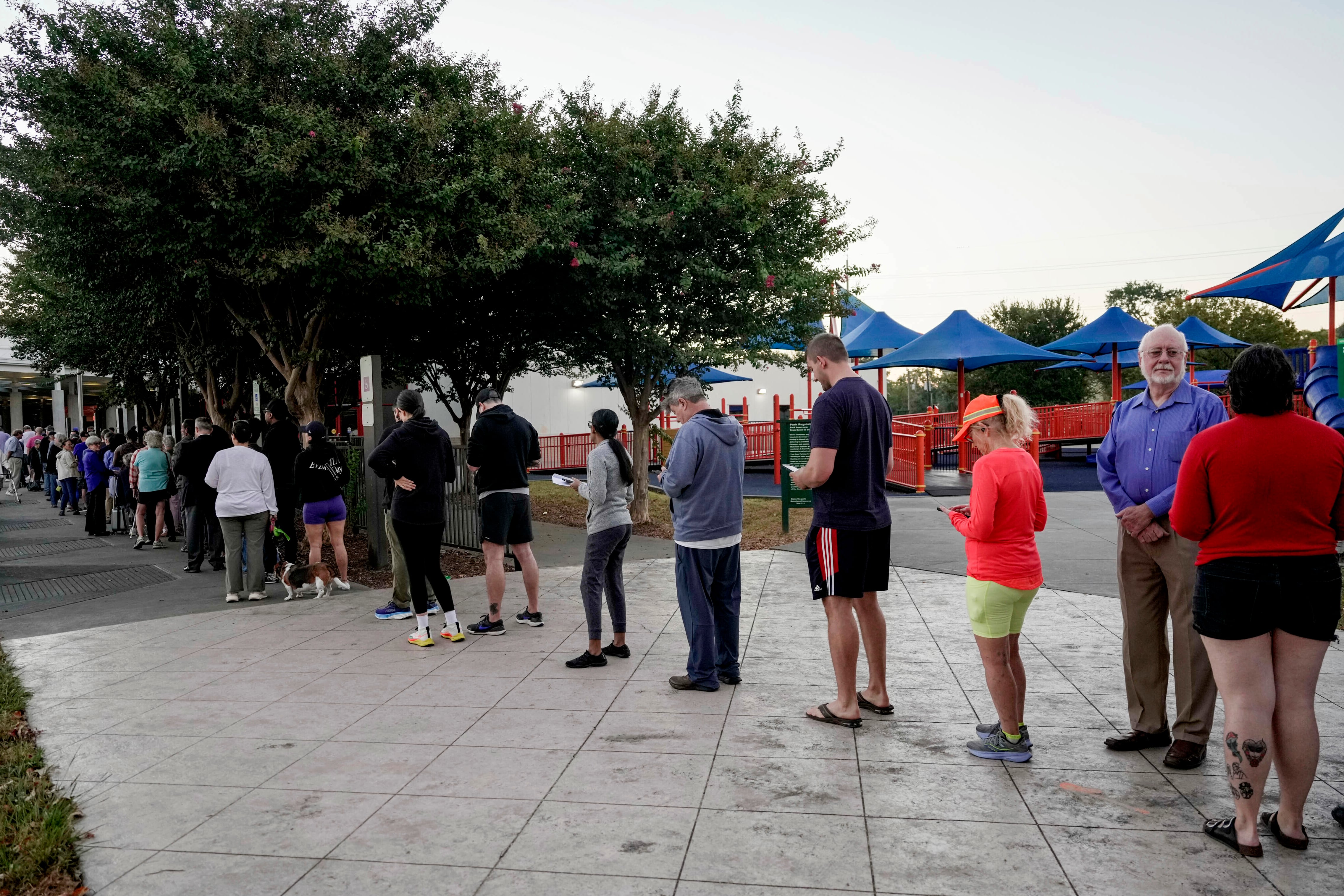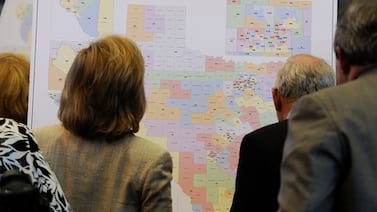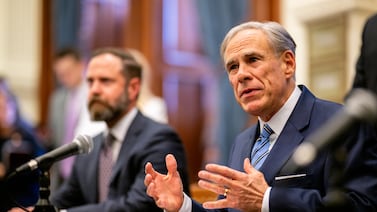Votebeat is a nonprofit news organization reporting on voting access and election administration across the U.S.
This news analysis was originally distributed in Votebeat’s free weekly newsletter. Sign up to get future editions, including the latest reporting from Votebeat bureaus and curated news from other publications, delivered to your inbox every Saturday.
The last day of voting is in just over a week, and for this newsletter, we thought it best to get out of the way of the experts. We asked three of them — John Merrill, the Republican former secretary of state in Alabama; Kathy Boockvar, the Democratic former secretary of state in Pennsylvania; and Mark Lindeman, the policy and strategy director at Verified Voting, a nonpartisan election technology group — the same three questions.
Here’s what they told us.
What about the coming election keeps you up at night?
Boockvar is concerned about the overall vibe. Deliberate misinformation, fearmongering, and the destruction of confidence in democratic institutions have “led to a powder keg — immense tension and distrust, and encouragement to act out,” she said. “It has also directly led to an increase in threats against election officials, including doxing, swatting, intimidation, and harassment. Regardless of who wins the November election, I am concerned about the human impact of all this.”
Lindeman, as well, isn’t loving the energy. “On good nights, folks like me are up working to help election officials address possible problems that could provide fodder for fearmongers,” he said. “On my bad nights, I worry about whether Americans sufficiently value our free and fair elections and the people who make them happen. We need to cherish and defend the best elements of our political system, elections among them.”
Merrill worries about whether election administrators “are properly prepared, have been properly trained, and are readily accepting their responsibility as election workers leading up to November 5th and continuing past election day through election certification.”
He added: “If those things have not been done, it is too late for them to occur now.”
What concern do you hear a lot that you think is overblown?
“The fears that are introduced by individuals who are ill-informed or uneducated about the elections process tend to take on a life of their own,” said Merrill, who believes many of these fears could be resolved if more people were willing to learn more about how elections work and participate in the process.
“If they dedicated as much time, energy, and effort to supporting the election apparatus in their jurisdiction as they do in demonstrating keyboard courage and trying to stir up false narratives about the elections process, I believe they would be more comfortable with the work that is being done and would ultimately see that the results are safe, secure, and that the transparency in the process has been well demonstrated,” he said.
Lindeman feels much the same. “Overall, many people have been led to accept a generalized vibe that election fraud is rampant — that corruption lurks in the voting machines, or the ballots, or the election officials, or who is allowed to vote, or maybe everything,” he said. “It’s almost an inversion of social reality, like perceiving firefighters as cogs in a nationwide conspiracy to destroy our freedom … somehow.”
Boockvar declined to answer this question.
What do you wish voters understood better about elections?
Boockvar wishes that people better understood the processes and safeguards involved. It’s our “neighbors, friends, and coaches” who work so hard to make sure every vote is counted, she said. Cybersecurity protocols and strict procedures “build in security and verification in every stage and system of our elections.” And then canvassing, reconciliation, and audits come at the end to make sure that the results are accurate.
“Thanks to the people, the science, and the math, all eligible voters can exercise our fundamental right to vote and have confidence our votes are being cast and counted securely and accurately,” she said.
Merrill also wishes folks understood how elections are run. “Education and orientation only take place when an individual is more intimately involved in the administration of the election through proper education, training, and participation in the direct administration of the process,” he said.
Lindeman is excited about how much progress he sees, and about how well the U.S. does in this space — a feeling he wishes more shared. Verified Voting, for example, works to support the use of voter-verified paper ballots to check vote counts. On this and in many other ways, he said, the U.S. has made significant progress in recent years.
“It’s important to see the big picture, which for me is this: U.S. elections are one of the things we do best as a country,” he said. “Vast numbers of good people work together across party lines to keep our elections free, fair, and honest. Well-designed procedures help them prevent, detect, and correct any problems.”
Jessica Huseman is Votebeat’s editorial director and is based in Dallas. Contact Jessica at jhuseman@votebeat.org.





